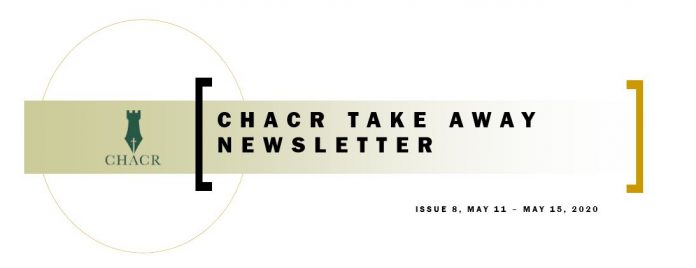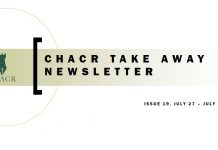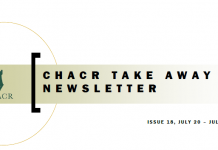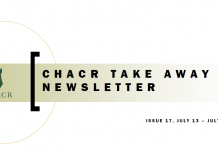This is the eighth issue of the weekly CHACR Take Away newsletter. In these newsletters, you will find links to the latest products by the CHACR, but also links to key reports and studies by external experts and institutions which we think you should pay attention to.
A Word from the Director
This week I have been mulling thoughts about nationhood and common purpose. History is full of examples of nations finding their identity in the face of bonds forged in hardship. The late great Richard Holmes used to deliver a wonderful vignette on Canadian nationhood on staff rides in Flanders and Normandy, illustrating how the two world wars had given Canada the confidence to speak, and act, for itself; and any dawn attendee at a modern ANZAC Day in amongst Australians will hear an extraordinary narrative of Gallipoli, delivered a hundred years or more on, explaining Australian identity forged in the face of insurmountable odds. Much of the rhetoric as we tackle COVID has been war-like: ‘a fight’, ‘the battle against this disease’, ‘if we are to defeat this deadly virus’, et al. But I wonder if the same war-like sense of unity, of nationhood, of common response to a common threat, or of togetherness is as evident as the language may suggest. Beyond showing, together, our appreciation for the NHS and other key workers, is COVID pulling us together in the face of a common threat? Our politics, our media, our modern approach to life do not lend themselves to positive unity of purpose. The twentyfirst century has, perhaps, made us quite individually-focused, but it has also encouraged us to become very critical, very questioning, very sceptical – all of which are good qualities for forensic examination, but few of which are bonding qualities. History, those who study strategy, and, indeed the shelves of the business section of any bookshop, will tell you that unity and common purpose are the benchmarks of successful attempts to tackle adversity. Maj Gen (Ret) Dr Andrew Sharpe





